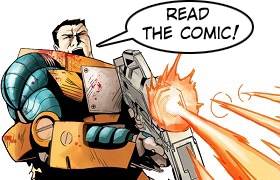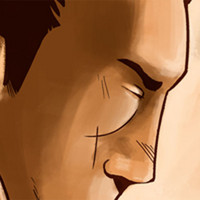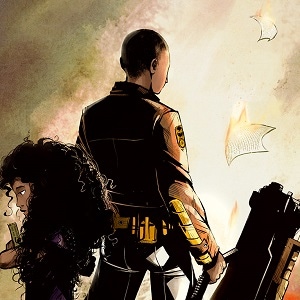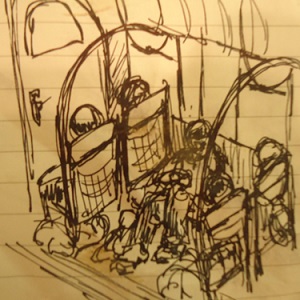2/1/14
I finally made it to Leipzig. I was stupid of me, so stupid, to try walking there this time of year. I really had hoped for no snow, but it was worse than ever. I’m lucky to have all my limbs. I’ve only barely warmed my hands enough now to write.
There are lots of other guys—and a number of girls, too—taking the train for the same reason as me. It must be even more desperate out there. They’ve reduced the cost to only a quarter of the usual price for Rostock and other bases.
2/3/14
I’ve been assigned my barracks and training starts tomorrow. I’m with the Navy now. I’m not sure how to feel about that. Even though Birkenhain is only three hundred kilometers away, it feels as though I’ve gone all the way to the moon. At least I’m not alone here. Turns out one of the guys, Radnitz, was born in the same area of Sachsen as me, though he doesn’t recall much of the area since his family moved north when he was five or so. He actually boarded the same train I took when it stopped in Hamburg.
Now that I’m here, I’ve decided to send off a letter to my family and let them know where I’ve gone. They probably know where I went already, but at least this way they know I made it.
2/7/14
I can barely move. The physical training is intense and relentless. Petty Officer Henschel is stricter than nearly any other on the base, though it doesn’t stop the Lischke twins from trifling with her whenever they can.
Every single day we go over our drills and basic training. We have to learn how to handle weapons I’ve never even seen up-close before—rifles, pistols, and heavy machine guns. Since we’ve begun, my ears have a constant ringing in them. I can only hope it goes away.
When our drills are over, we take courses in naval regulations and first aid. Between that, there’s guard training and basic naval training, though most of it is just following procedure on-board. None of us are expected to steer the ship or keep her moving, but we still have to understand the roles we don’t play.
It’s all so much to take in. Am I up to the task? I must, I have no choice but to be.
2/8/14
My parents wrote back. They say there is nothing more to say. I am there and that’s all there is to it. It bothers me, this short response, but Radnitz says not to worry about it. His parents were in shock too. They sent him a letter not unlike mine. He won’t say, but I think he left Hamburg the same way I left, silently in the night snow.
They do say Emilie has been to the chapel more often these days, praying for my safe return. I must admit, I’ve gone to the chapel on base once or twice since I came here. It’s familiar, I guess, and they keep the cold out. Schöenwald goes there for the warmth too, always complaining of the frigid salt air. None of us are surprised at it—he complains about everything.
2/10/14
Tonight I am writing by candle. The crisis has forced a mandatory lights-out after 1900 hours from the coast to as far as Berlin until further notice. I can’t help thinking with all the candles we go through that the business of candle-making must be good these days.
All the while, the Americans have enough gas and electricity to power stupid, frivolous things. Here, only hospitals may keep the power on at all times, while across the sea, theaters and restaurants are open late into the night and people spend their evenings in warm, fully-lit houses instead of cold, dark barracks.
2/11/14
My joints ache. I was training with a particularly large machine gun and wasn’t prepared for the recoil. I may have pulled something and I can’t get the stink of gunpowder out of my nose no matter what I do. At least I got another letter, this one straight from Emilie. She doesn’t speak of the crisis at all. She just tells me how our family has been and wishes me well. In return, I tell her what the sea is like when the sunset spreads across the tide and how the sister of the Lischke twins managed to fool Petty Officer Henschel into thinking the brother had fallen overboard during our first tour of our assigned vessel.
2/20/14
I hear rumors our forces plan to put out to sea as summer approaches and invade the Mexican Gulf for its oil. Schöenwald, the little miss, thinks it’s a shame they’ll waste the summer away sailing on crowded ships and tramping through oil fields. Sometimes I don’t think he realizes we’re in crisis.
The twins got in a lot of trouble today, sneaking in a large stash of homemade beer. It was nasty-tasting swill, but we didn’t care. Drink enough of it and the taste doesn’t matter. I wish I’d taken a picture when the Lischke brother drew all over Bauer’s face after he passed out by the doorway. Who knew the big guy was such a lightweight? The twins will be scrubbing the latrines for the next week, but it was worth it. Radnitz and I are betting on who will smell worse by the end. The loser has to wear lipstick and a blonde wig on our next visit into town.
2/23/14
I went to the chapel today and saw the minister giving some of the food kept back for the poor to an old, gnarled woman. She was crying an awful lot. I think she must have lost someone.
I like talking with the minister sometimes, provided the Little Miss isn’t there to complain all the while. He’s a lot like the minister at home—solemn and quiet, but makes time to answer little questions even as he goes about his work. I asked about the woman, but he just said the crisis affects us all and wouldn’t say anything more of her.
2/24/14
Bauer knows how to drive. How about that? He says he’ll teach me if I like, but I’m going to wait until the crisis is over, when gas isn’t so short in supply. He shrugged and said his offer stands if I change my mind. He’s a good man. I feel bad now for letting the Lischke brother draw on his face. At least the marks are mostly faded.
Training seems to get easier even as the regimen becomes more intense. I hurt every day, but I get stronger, too. I still have to work on my aim, though. Radnitz says I shoot only a little better than the Little Miss. What does he know? I hit more of my targets than he does. He just hits dead-on more often when he does hit.
2/26/14
Everyone in the barracks agrees—the Lischke sister smells much worse than the brother. I lost the bet.
-------------------------------------------------------------------------
Any reader of my research may wonder why I included this chapter that has little to no obvious historical value. My only reply would be that history is more than the names, dates and locations of events. It is people. People who lived and breathed, and had friends, stories, goals and dreams. To ignore these parts of history is to ignore what makes humans human.












Comments (0)
See all